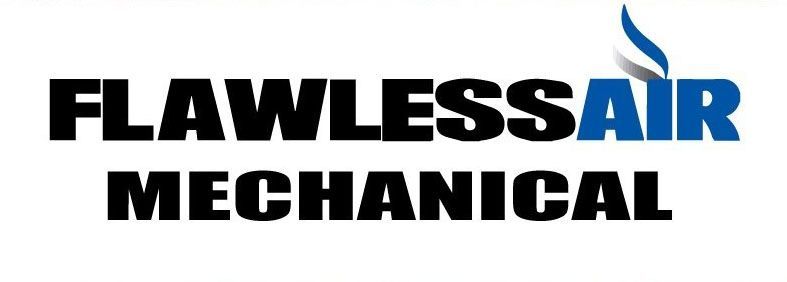What Are the Common HVAC Problems
Your HVAC system is vital for maintaining comfort in your home, regulating temperature, and ensuring air quality. However, like any complex system, it can encounter issues over time. Understanding these common HVAC problems can help you identify issues early and prevent costly repairs.
HVAC systems are composed of various components such as furnaces, boilers, heaters, air conditioners, and thermostats. Issues with any of these parts can affect how efficiently and effectively the system operates. This blog post will explore common HVAC problems and their solutions, helping you better maintain your system's performance and efficiency.
10 Common HVAC Problems and How to Fix Them
Maintaining your HVAC system is essential for consistent home comfort and energy efficiency. Below, we'll tackle ten common HVAC problems and practical solutions to address them, which guarantee your system operates smoothly year-round.
1.Dirty or Clogged Filters
Dirty or clogged filters restrict airflow that reduce HVAC efficiency and indoor air quality. Regularly check and replace filters every 1-3 months, or as recommended by the manufacturer. This simple maintenance task improves airflow, lessens strain on the system, and enhances indoor air quality.
2. Thermostat Malfunctions
Faulty thermostats can lead to temperature inconsistencies or failure to start or stop the system as programmed. Check thermostat settings, replace batteries if necessary, and ensure it's placed away from heat sources or direct sunlight. Think about upgrading to a programmable thermostat for precise temperature management and potential energy savings.
3. Refrigerant Leaks
Low refrigerant levels indicate leaks within the HVAC system, which affects cooling efficiency and potentially damages the compressor. Schedule professional HVAC maintenance to detect and repair refrigerant leaks. Technicians can recharge the system with refrigerant and guarantee proper functioning to restore cooling capacity.
4. Electrical Control Failures
HVAC systems rely on electrical components like capacitors and relays. Faulty connections or components can lead to system malfunctions or failure to start. Regularly inspect electrical connections and components during HVAC maintenance. Replace worn-out parts and ensure proper electrical flow to prevent system breakdowns.
5. Dirty Evaporator or Condenser Coils
Accumulated dirt on coils reduces heat transfer efficiency, increasing energy consumption and straining the system. Schedule professional HVAC cleaning to remove dirt and debris from evaporator and condenser coils. Clean coils improve heat transfer, enhance system efficiency, and extend the lifespan of your unit.
6. Clogged Drain Lines
Condensate drain lines can become blocked with algae, mold, or debris, causing water leaks or humidity issues indoors. Regularly clean and clear drain lines to prevent blockages and guarantee proper drainage from the HVAC system.
7. Blower Motor Problems
The blower motor circulates air throughout your home. Issues such as motor wear, belt problems, or lack of lubrication can lead to reduced airflow and system inefficiency. Schedule regular HVAC maintenance to lubricate moving parts, inspect belts for wear, and ensure the blower motor operates efficiently. Promptly addressing blower motor issues improves airflow and enhances HVAC performance.
8. Ductwork Leaks
Leaky ducts waste energy by allowing conditioned air to escape into unconditioned spaces like attics or crawl spaces. Hire a professional HVAC technician to inspect and seal ductwork leaks. Properly sealed ducts improve HVAC efficiency, enhance indoor comfort, and reduce energy costs.
9. Strange Noises
Unusual sounds such as squealing, banging, or rattling may indicate mechanical problems within the HVAC system. Turn off the HVAC system and contact a certified technician to diagnose and repair the underlying issue. Ignoring these unusual noises can lead to further damage and costly repairs.
10. Lack of Maintenance
Neglecting regular HVAC maintenance increases the risk of system breakdowns, reduces efficiency, and shortens the system's lifespan. Schedule annual HVAC maintenance with a reputable service provider. Professional inspections, cleaning, and tuning ensure optimal system performance, prevent expensive repairs, and extend the life of your HVAC unit.
Frequently Asked Questions

How much does HVAC repair cost?
HVAC repair costs around $350 on average, though prices can vary widely. Simple repairs might cost as little as $100, while complex issues could reach up to $3,000. Factors like the type of repair needed, the age of the system, and local labor rates influence the final cost.
What is the lifespan of an HVAC system?
Your HVAC system typically lasts between 15 to 25 years if properly maintained. Regular maintenance such as changing filters and scheduling professional inspections helps extend its lifespan and guarantees efficient operation throughout the years.
Can I perform HVAC repairs myself?
While simple tasks like changing air filters can be done yourself, most HVAC repairs require specialized knowledge and tools. Attempting complex repairs with no proper training can be risky and may void warranties. It's advisable to engage a qualified HVAC technician for repairs to ensure safety, proper functioning, and compliance with manufacturer guidelines.
Conclusion
Being aware of these common HVAC problems enables you to take proactive steps in maintaining your HVAC system's efficiency and functionality. Whether it's regular maintenance, prompt repairs, or professional inspections, investing in your HVAC system's care pays off in comfort and cost savings over time.
For expert HVAC services and maintenance, trust Flawless Air Mechanical. Our experienced technicians are ready to address any common HVAC problems and keep your system running flawlessly.
Contact us
now!
Ready to work with Flawless Air Mechanical?
Let's connect! We’re here to help.
Send us a message and we’ll be in touch.
Or give us a call today at (720) 667-7056
Agency Contact Form
We will get back to you as soon as possible
Please try again later
More Marketing Tips, Tricks & Tools
Flawless Air Mechanical Blogs
CONTACT US
SUBSCRIBE TO OUR NEWSLETTER
Contact Us
We will get back to you as soon as possible.
Please try again later.
© 2024 Flawless Air Mechanical - All rights reserved











